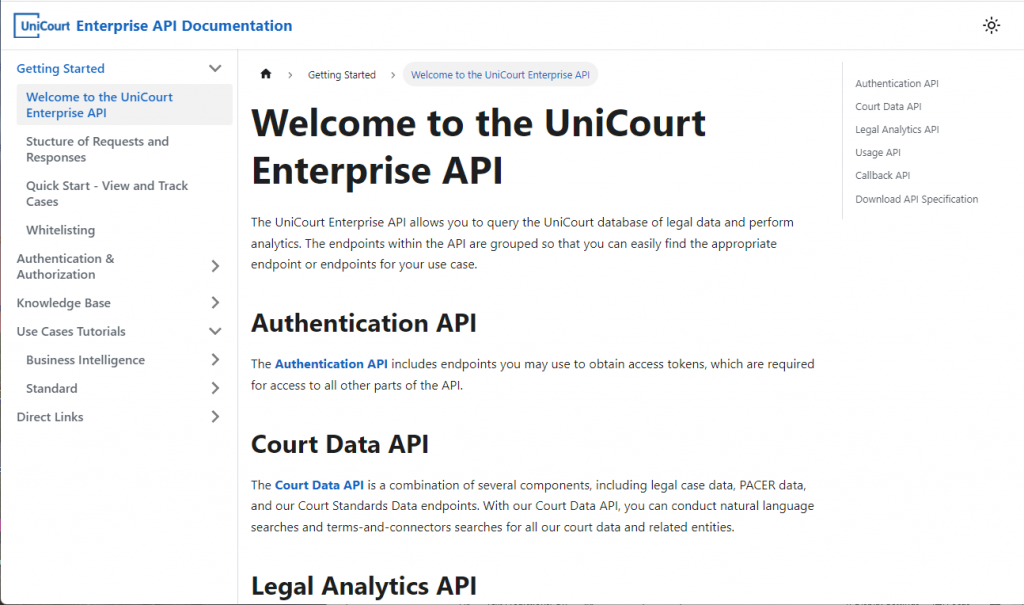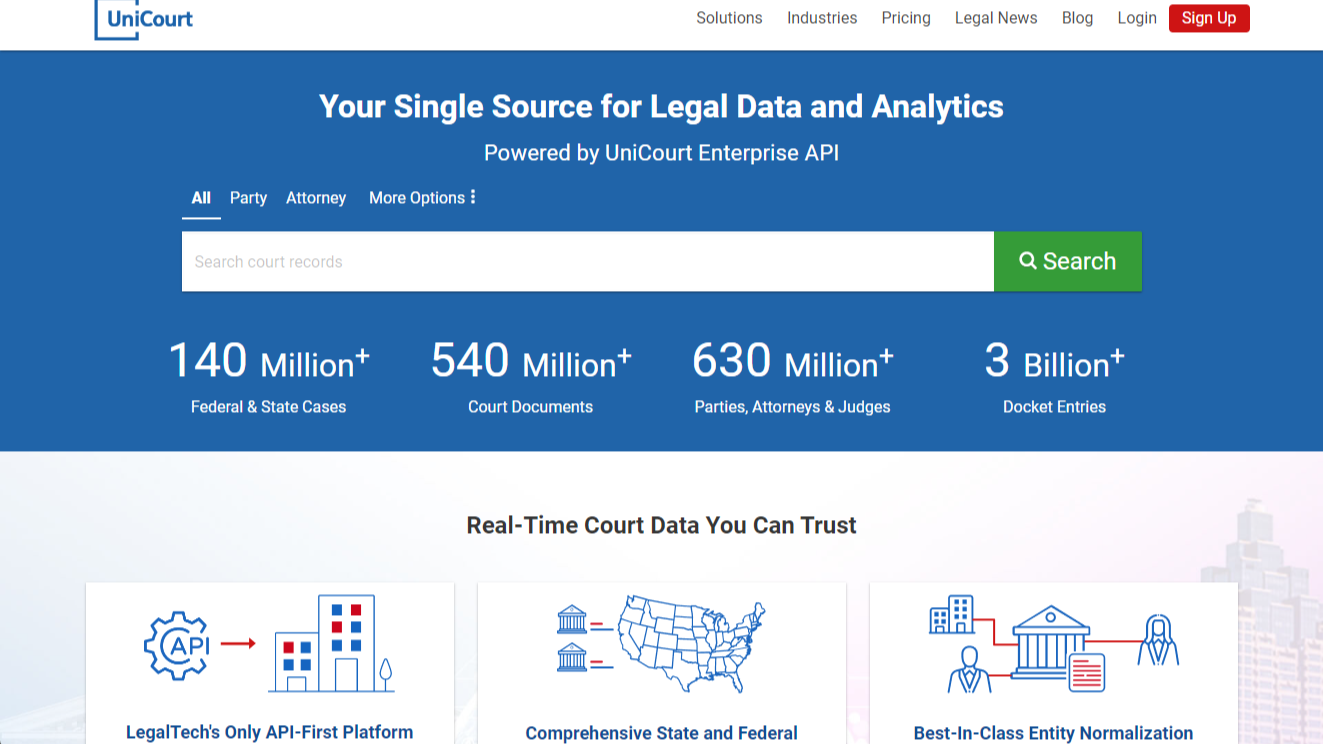When UniCourt was founded in 2014 to provide access to court data and analytics, APIs were an afterthought, cofounder Josh Blandi now says. The company’s original focus was on building an application to provide law firms and others with easy access to federal and state court records. But soon customers were asking for API access to the data, and UniCourt responded, developing its first-generation set of APIs and releasing them in 2017.
But as customers’ use of the APIs increased over the next three years, Blandi came to realize that the company has made a mistake in modeling the APIs on its application instead of taking an API-first approach to their development, thereby limiting the APIs’ flexibility and functionality for the range of uses customers wanted. Thus, in 2020, UniCourt went back to the drawing board, devoting more than 100 engineers and nearly three years of effort to rebuilding the APIs from the ground up.
“We adopted an API-first methodology, which means our focus was to create APIs first and allow a platform that’s flexible enough to accommodate an array of different use cases and then allow people to build applications and products and services off of that, rather than trying to mimic the constraints of our application,” Blandi told me.
Now, UniCourt has revealed the fruits of that labor, announcing the availability of the new UniCourt Enterprise API. which the company says represents a significant advancement compared to other APIs available to the legal marketplace and is legal tech’s only API-first suite of access points into comprehensive, real-time state and federal court data.
“The UniCourt Enterprise API is purpose-built to automate the discovery and delivery of structured legal data and analytics, empowering business development, litigation strategy, docket management, and much more,” the company said in announcing the new API.
“We’re now an API company,” Blandi said.
Court Data and Analytics
The new offering provides two primary APIs:
- Court Data API, which includes data from federal and state courts, allowing users to conduct natural language searches and terms-and-connectors searches across court data and related entities.
- Legal Analytics API, which includes endpoints that are used to access the results of UniCourt’s analytics, enabling users to generate actionable insights from UniCourt’s legal data. These include analytics on attorneys, law firms, judges, parties and cases.

UniCourt provides extensive documentation that includes sample code, a Python library, quick-start guides, a knowledge base, and tutorials.
The APIs are designed to provide a plug-and-play architecture that makes it easy for law firms and other customers to handle an array of uses cases. Extensive documentation includes sample code, a Python library, quick-start guides, a knowledge base, and tutorials for use cases such as how to identify a law firm’s top case type or top attorneys.
Blandi believes that a key differentiator of UniCourt’s analytics is the effort the company has put into entity normalization across different types and sets of court data — that is, correcting for differences and errors in syntax, nomenclature and spelling to ensure consistency across all references to a particular attorney, judge or party.
“It’s very tough to build analytics that you can trust and rely on,” Blandi said. “Over the last several years, we spent a ton of effort on building out this entity normalization, which we believe now is best in class.”
Foundation for Expansion
The work that has gone into building these APIs will form the foundation for the company’s future expansion, as it adds new APIs to meet customer needs. It currently has some 160 API endpoints, and Blandi said that will reach over 300 endpoints within the next two years.
“We take a lot of feedback from clients. Just imagine, a client says, ‘We’re really looking for this outcome in a docket or event,’ or ‘We’re looking for this type of information that’s found in documents; we want you to structure it.’ No problem, we can make an API endpoint and then let really everyone consume that.”
UniCourt’s primary market is larger law firms that are using the data for business development, litigation strategy and docket management. In recent years, it has also come to be used by a number of insurance companies, Blandi said.
A number of legal tech companies are also customers, he said.
“Something that’s important to highlight is that, in building these APIs, we envision an open ecosystem that allows everybody to come in and plug into these data sets, pull them out, and be able to use them in innovative ways, whether it’s internally, whether they want to build products and services. Our license on the data is about innovation and about wanting to have an ecosystem that’s driven off of this type of data for those who can use it.”
Blandi believes these new APIs will help drive a surge within law firms of how they use this data and what they build with it. Firms that rely on legacy products are limited by the product’s use case and intended audience, he said. But for firms that invest in the infrastructure to ingest third-party data through an API, “there’s really no limit to what they can do with it.”
As with any provider of court data and analytics, accessing and collecting state court data is a challenge. While PACER makes federal court data easily accessible and standardized, state courts differ from state to state and even sometimes from court to court in what data is available and how it is structured.
Blandi said that UniCourt’s state court coverage now includes between 1,200-1,300 courts in 13 states. By the end of the year, it will cover 1,500 courts and will encompass the courts that serve some 70% of the U.S. population.
“We think what we’re doing is really foundational,” Blandi said. “I mean, our mission is really about making court data more organized, accessible and useful for everyone. We just happen to be targeting law firms and insurance companies right now. But it really is about for everyone.”
 Robert Ambrogi Blog
Robert Ambrogi Blog
